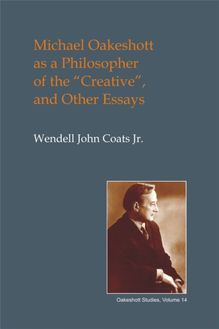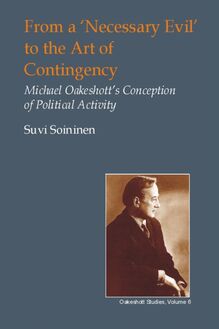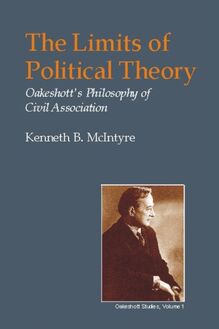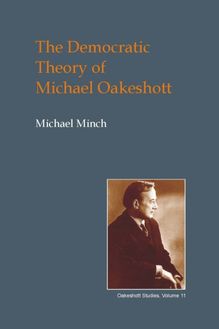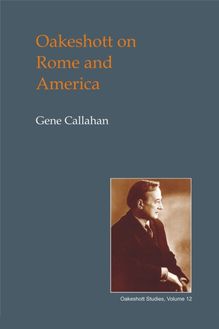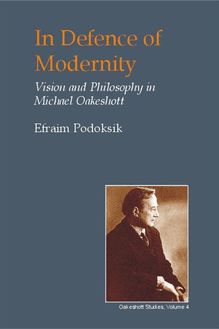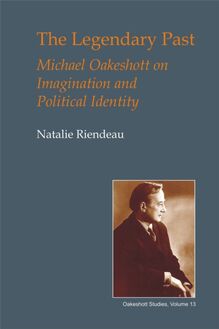-
 Univers
Univers
-
 Ebooks
Ebooks
-
 Livres audio
Livres audio
-
 Presse
Presse
-
 Podcasts
Podcasts
-
 BD
BD
-
 Documents
Documents
-
- Cours
- Révisions
- Ressources pédagogiques
- Sciences de l’éducation
- Manuels scolaires
- Langues
- Travaux de classe
- Annales de BEP
- Etudes supérieures
- Maternelle et primaire
- Fiches de lecture
- Orientation scolaire
- Méthodologie
- Corrigés de devoir
- Annales d’examens et concours
- Annales du bac
- Annales du brevet
- Rapports de stage
La lecture à portée de main
Vous pourrez modifier la taille du texte de cet ouvrage
Découvre YouScribe en t'inscrivant gratuitement
Je m'inscrisDécouvre YouScribe en t'inscrivant gratuitement
Je m'inscrisEn savoir plus
Vous pourrez modifier la taille du texte de cet ouvrage
En savoir plus

Description
Sujets
Informations
| Publié par | Andrews UK |
| Date de parution | 15 octobre 2015 |
| Nombre de lectures | 0 |
| EAN13 | 9781845404260 |
| Langue | English |
Informations légales : prix de location à la page 0,1124€. Cette information est donnée uniquement à titre indicatif conformément à la législation en vigueur.
Extrait
Title page
Oakeshott on History
Luke O’Sullivan
Copyright page
Copyright © Luke O’Sullivan, 2003
The moral rights of the authors have been asserted
No part of any contribution may be reproduced in any form without permission, except for the quotation of brief passages in criticism and discussion.
Originally published in the UK by Imprint Academic
PO Box 200, Exeter EX5 5YX, UK
Originally published in the USA by Imprint Academic
Philosophy Documentation Center
PO Box 7147, Charlottesville, VA 22906-7147, USA
2013 digital version by Andrews UK Limited
www.andrewsuk.com
Dedication
For my parents, friends and teachers
Abbreviations
Abbreviations of titles of works by Oakeshott used in the text
CA Hobbes on Civil Association
EM Experience and its Modes
HC On Human Conduct
LSE London School of Economics Archival Material
ML Religion, Politics and the Moral Life
MP Morality and Politics in Modern Europe
OH On History and Other Essays
PF The Politics of Faith and the Politics of Scepticism
RP Rationalism in Politics and Other Essays
SP The Social and Political Doctrines of Contemporary Europe
VL The Voice of Liberal Learning
Preface
A large part of the initial appeal to me, in 1992, of a study of Oakeshott’s ideas on history was that they had received little attention: Oakeshott was best known as a political thinker. The thesis on which this book is based was completed in 1996, but, ten years after I initially began work on the subject, it remains, to my knowledge, the only full-length study of his ideas on history, which are at least as important as anything he had to say on the philosophy of politics. There have, however, been significant changes in what seems, at the beginning of the twenty-first century, to be fast becoming a subject in its own right: ‘Oakeshott studies’. The formation of the Michael Oakeshott Association, thanks to the efforts of Leslie Marsh, who also organised the first conference exclusively devoted to Oakeshott’s work at the London School of Economics in 2001, was a welcome development, but perhaps the most important was the acquisition in 1997 by the LSE of Oakeshott’s papers. This collection, discussed in more detail in the Introduction, was only thoroughly catalogued in 2001 by Anna Towlson, who deserves the thanks of Oakeshott scholars everywhere for her efforts. In referring to papers in the Oakeshott archive, this book follows the reference numbers used in the arrangement she devised unless otherwise stated. It will be some years before the archive is fully explored, but as much use as possible has been made of it here.
Oakeshott has the distinction of having authored not one but two of the handful of ground-breaking investigations into the critical philosophy of history that the twentieth century produced. The story of how his ideas changed in the fifty years separating Experience and its Modes and On History occupies half of the present study, the organization of which reflects the fact that ‘history’, the word, is a homonym. ‘History’, that is, can refer both to events in the past and to a form of enquiry peculiarly concerned with such events. It would hardly be too much to say that all Oakeshott’s writings on the philosophy of history were devoted to working out the implications of this for the nature of historical understanding. Yet it seemed impossible to ignore what Oakeshott had to say on the other sense of history, history as events rather than as a form of enquiry. The other half of this book, therefore, addresses Oakeshott’s work on the history of political thought, an almost equally neglected subject.
It proved easiest to work through the material in chronological order, holding these two main strands apart and letting them unfold in tandem, making connections where possible. So, chapters one, three, and five deal with Oakeshott on the historical past. Beginning with his pre-World War Two career at Cambridge, first as a student, and then as a lecturer in history, they cover his writings on Hobbes and the quasi-historical figure of the Rationalist, culminating with his understanding of the moral and political experiences of post-Renaissance Europe as the product of a tension between two conflicting ideas of the state.
Chapters two, four, and six discuss Oakeshott’s contemporaneous writings on the nature of historical enquiry. Initially, he had to overcome scepticism about the possibility of historical knowledge: his later writings distinguished history from other ‘modes’ of experience such as philosophy and natural science by specifying the postulates characteristic of historical enquiry such as agency and contingency. An integral part of this process was a fundamental shift in Oakeshott’s conception of the relation of philosophy to other forms of thought, from a conception of it as ‘queen of the sciences’, exempt from the ‘arrests’ suffered by the other modes, and offering an undistorted vision of things as they really are, to a more modest view of it as one ‘voice’ amongst others. History thus ceased to be seen as an unsatisfactory mode of enquiry from the philosophical perspective, becoming simply, like philosophy itself, a conditional form of theorising.
Somewhat ironically, given that Oakeshott himself maintained that there was no necessary connection between his ideas on the philosophy of history and any particular view of historical events, it turned out that there were few such connections, at any rate of any very direct sort, to be made. There were certain views of historical events which Oakeshott’s philosophy of history appeared to characterise as unhistorical, or which at best were placed in the category of speculative philosophies of history, such as the Marxist view, but even such negative prescriptions concerning permissible delineations of the past usually have to be inferred from what he wrote, rather than being explicit.
This book argues for two conclusions which should lead to a permanent revision of our understanding of Oakeshott’s intellectual legacy. Firstly, that Oakeshott’s writings on historical events gradually led him to a novel account of the history of liberalism understood first and foremost as a commitment to the rule of law (as distinct from, for example, a commitment to free markets). Secondly, that his writings on the philosophy of history over the same period established historical study as an autonomous form of enquiry. Two articles on Oakeshott which appeared in between the completion of the thesis and the appearance of the book do not modify these broad conclusions in any way, but the work done for them led to some corrections in matters of detail, for example, in the discussion of Oakeshott’s relationship to Gierke.
I will always be grateful to the Australian government and people, and to the Australian National University, for their generosity in funding several happy years in Canberra as an Overseas Postgraduate Research Scholar. I was lucky enough to meet a fellow Oakeshott scholar there, Dr Glenn Worthington, with whom I had countless useful and enjoyable conversations. Professor K. Haakonssen supervised my work there with good humour and invariably supplied constructive criticism. His continuing encouragement has been especially valuable. The late Professor P. Bourke, Professor F.B. Smith, Dr J. Shearmur, and Dr A. Vincent were all kind enough to read my work.
While at ANU I profited from conversations about Oakeshott with Professors K. Minogue, Q. Skinner, W.H. Greenleaf and C.N.L. Brooke, Dr Arthur Witherall, and Mrs J. Plaat. Without the gracious permission of the late Mrs S. Letwin and Professor W. Letwin, then literary executors of Oakeshott’s estate, much of the unpublished material used in the book would then have been unavailable to me. Mr L. Davidson and Professor N.K. O’Sullivan were good enough to furnish me with the remainder. I would also like to thank the librarians of the ANU, Cambridge University library, Gonville and Caius College library, and the LSE archives, as well as Mrs P. Weatherly, archivist and historian of St. George’s School, Kent. Last but certainly not least, the extraordinary secretarial staff of the History Program in the Research School of Social Sciences - Beverly Gallina, Janice Aldridge, Helen Macnab and Anthea Bundock - consistently went far beyond the call of duty in assisting with everything from technology to travel.
When the thesis was completed, I found myself unusually fortunate in my three external examiners: Professor David Boucher, then the only author to have shown any sustained interest in the areas of Oakeshott’s thought which this book discusses, and a major force in the restoration of interest in British Idealist philosophy; Professor Conal Condren, who had studied with Oakeshott at the LSE, and a formidable scholar of the history of political thought in his own right; and Professor Reba Soffer, who made Oakeshott part of her investigations into the history of British political thought, and has since been kind enough to buy me the odd dinner or two. It is largely thanks to their positive reception of the thesis, and the constructive criticism of Professor Terry Nardin, himself the author of an authoritative study of Oakeshott’s philosophy, that I was persuaded to revise it for publication. None of the above, however, should be made to bear any responsibility for its shortcomings. Since the subject of Oakeshott’s ideas on history continues to be relatively unfamiliar, forgiveness is asked for more exposition and quotation than might have otherwise been necessary.
Introduction
As soon as Michael Oakeshott succeeded Harold Laski as Professor of Political Science at the London School of Economics
-
 Univers
Univers
-
 Ebooks
Ebooks
-
 Livres audio
Livres audio
-
 Presse
Presse
-
 Podcasts
Podcasts
-
 BD
BD
-
 Documents
Documents
-
Jeunesse
-
Littérature
-
Ressources professionnelles
-
Santé et bien-être
-
Savoirs
-
Education
-
Loisirs et hobbies
-
Art, musique et cinéma
-
Actualité et débat de société
-
Jeunesse
-
Littérature
-
Ressources professionnelles
-
Santé et bien-être
-
Savoirs
-
Education
-
Loisirs et hobbies
-
Art, musique et cinéma
-
Actualité et débat de société
-
Actualités
-
Lifestyle
-
Presse jeunesse
-
Presse professionnelle
-
Pratique
-
Presse sportive
-
Presse internationale
-
Culture & Médias
-
Action et Aventures
-
Science-fiction et Fantasy
-
Société
-
Jeunesse
-
Littérature
-
Ressources professionnelles
-
Santé et bien-être
-
Savoirs
-
Education
-
Loisirs et hobbies
-
Art, musique et cinéma
-
Actualité et débat de société
- Cours
- Révisions
- Ressources pédagogiques
- Sciences de l’éducation
- Manuels scolaires
- Langues
- Travaux de classe
- Annales de BEP
- Etudes supérieures
- Maternelle et primaire
- Fiches de lecture
- Orientation scolaire
- Méthodologie
- Corrigés de devoir
- Annales d’examens et concours
- Annales du bac
- Annales du brevet
- Rapports de stage
